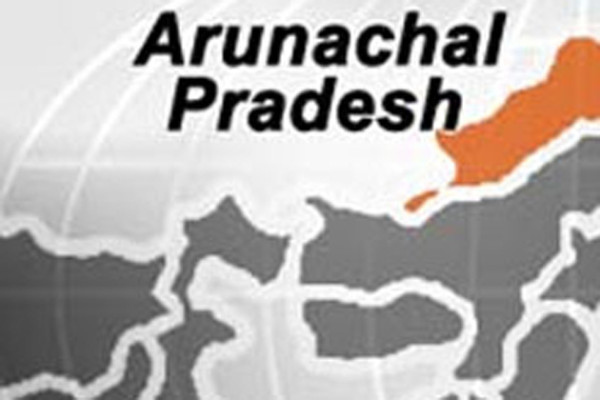The media houses in Arunachal Pradesh, a northeast frontier province of India, have received a special shielding from the authorities that actually brings about a worse security scenario for media persons in the capital city of Itanagar. Following successful agitations, taken up by all media houses of Itanagar, the province government has directed the police to provide 24 X 7 security and to install CCTV cameras in all newspaper offices.
By Nava J. Thakuria – a journalist based in Guwahati, northeast India
Moreover, the authorities have declared all media establishments in Itanagar as prohibited areas and anyone entering the newspaper premises after 5 in the evening will be treated as a trespasser.
The conflict started on February 14, when all the seven morning daily newspapers of the State declared a shut down against a decision of the local authority to allow a students body to demonstrate in front of an Itanagar-based media house.
For four days, the people of Arunachal did not receive their local newspapers. At the same time the cable news channels also joined in the chorus over all these days.
The deadlock broke following a meeting of the province government chief Nabam Tuki with the agitating media persons under the leadership of Arunachal Press Club and Arunachal Pradesh Union of Working Journalists on February 18. Arunachal Pradesh chief minister Nabam Tuki listened to the grievances of the journalists in the meeting, where they described the ongoing security threats to the media employees. Mentioning many incidences of attacks on media persons, precisely T. Rina’s case of facing bullets from miscreants in front of her office a few months back in Itanagar, when journalists urged the government ‘to notify all press establishments as prohibited areas after 5 pm and any trespasser to be treated as illegal’.
The journalists also raised voice for a special law to protect the media persons on duty to serve as a deterrent against frequent attacks on media houses. The chief minister sought a committee to do the needful and asked the state information secretary Dani Salu to take necessary follow-up action.
The indefinite shutting down of all Arunachal-based daily newspapers namely Echo of Arunachal, Arunachal Times, Arunachal Front, Dawnlit Post, Eastern Sentinel, Independent Review and Arunachal Pioneer was recognized as a major protest programme against the authority’s anti-media ruling that threatened the safety and security of media employees.
The Arunachal media fraternity took a strong decision on confrontations between the media persons and the members of Students’ Union Movement of Arunachal (SUMA), which staged a demonstration on February 14 against The Arunachal Times, the first English newspaper of the state, bordering Bhutan, Tibet (China) and Burma.
The conflict began when the Itanagar capital complex district magistrate Mige Kamki permitted the students’ organization to stage the protest programme in front of the pioneer newspaper house. The development angered the media fraternity as the authority had virtually bowed down to the pressure of SUMA, which has a background of confrontations with the media.
The media persons unanimously demanded the suspension of Mige Kamki for his permission to SUMA, which had problems with The Arunachal Times since a few months back, as a ‘senseless action’ that could have resulted in chaos in the city. They also claimed that ‘supporting the irrational demand of SUMA to stage demonstrations against a media house’, Mige Kamki had indirectly gone for a curtailing of the liberty of press media. However, Mige Kamki later claimed through a press statement that he permitted SUMA for peaceful rally (dharna) at the newly designated ground in Itanagar and not in front of The Arunachal Times office on
14th February, 2014.
Denying the allegation against him ‘as baseless, unfounded and irresponsible’, the district magistrate also commented that the indefinite shutdown of all Itanagar based media houses was ‘uncalled for and unwarranted’.
Opposition voices against the closing down of all newspapers also emerged from the ground arguing that ‘nowhere else in the world, newspapers or media houses impose self-closure indefinitely to protest a wrong done on them, no matter how serious it is’.
A conscientous reader of Itanagar, who wanted anonymity, talked to this writer and pointed out that ‘by closing down they (media persons) only dismantled the only machinery available to them to register a strong protest’.
The chairman of Press Council of India, Justice Markandey Katju, noted with concern that the newspapers in Arunachal were suspended for four days following the difference in opinion with the authorities and members of SUMA. He however commented loud and clear that ‘the newspaper industry has the right to raise concerns over the security of media houses and their employees, but suspending publication is not in the public interest’.
Earlier condemning any kind of threats to the media houses in any case, a scribes’ body of neighboring Assam, urged Arunachal Pradesh government to intervene on the matter and resolve the issue immediately to uphold freedom of expression and right to know of thousands of esteemed newspaper readers.
The Journalists’ Forum Assam also appealed to the agitating media persons to withdraw their strike keeping an eye on the denizens of the mountainous state. The local press club and working journalist body, which had jointly taken the path of agitation, expressed happiness at the authority’s decision to convert the local media establishments as prohibited areas after 5pm and appealed to the citizens to send their statements through emails or drop the press releases in the prescribed boxes. They also deeply regretted for the inconvenience caused to the esteem readers of Arunachal Pradesh (also the onlookers of Itanagar based newspaper’s Wb pages) because of the unwanted shut down of all newspapers.










